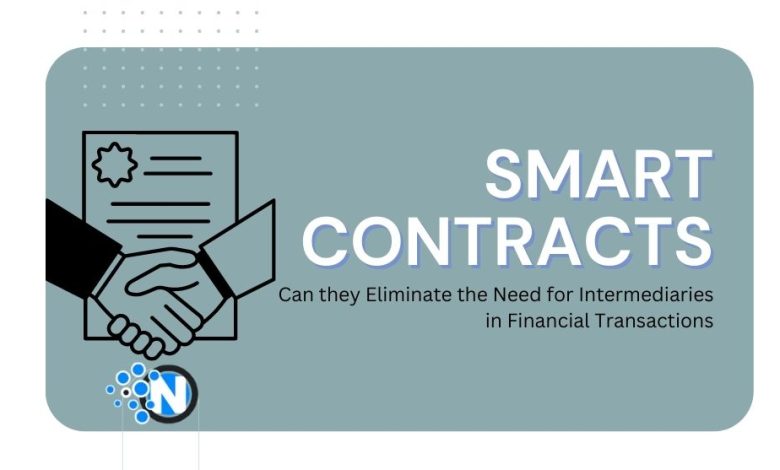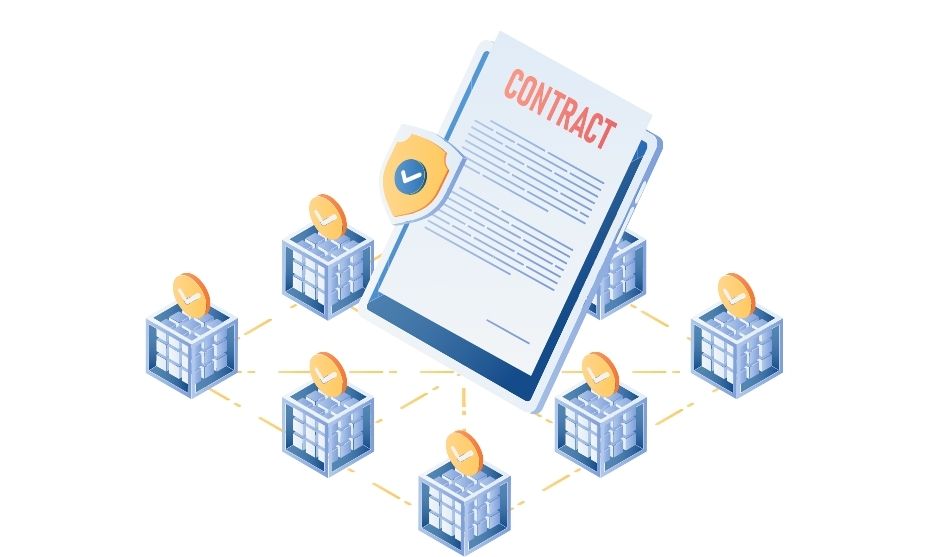Can Smart Contracts Truly Eliminate the Need for Intermediaries in Financial Transactions?

The rise of blockchain technology has brought about innovative solutions to various industries, and finance is no exception. Among these innovations, smart contracts have appeared as a groundbreaking concept with the potential to transform financial transactions. Smart contracts are self-executing contracts with predefined terms written directly into code, which run on a decentralized blockchain network. Even as we ponder whether smart contracts can truly eliminate intermediaries in financial transactions, it’s undeniable that automation tools like the quantum AI trading app are already reducing human intervention in cryptocurrency trading.
This article contains some insights into whether smart contracts can eliminate the need for intermediaries in financial transactions and explores the implications of this potential shift in the financial landscape.
Understanding Smart Contracts
By leveraging blockchain technology, smart contracts offer a sophisticated method for executing agreements. These computer programs help facilitate, verify, or enforce the terms and conditions of an agreement between parties. By eliminating the participation of intermediaries such as banks, legal entities, or notaries, they enable a transparent and secure approach to transactional activities. The software includes the contractual terms, and the contract is automatically executed when the specified conditions are met.
The Role of Intermediaries in Financial Transactions
Throughout history, intermediaries have been essential in financial transactions for their ability to provide assurance, protection, and lawful adherence between concerned parties. Banks and other third-party entities serve as intermediaries in various transactions, Overseeing transactions along with identity verification and record maintenance is part of the responsibility. Although, the participation of mediators commonly brings about slowdowns, further financial burdens and potential confidentiality worries. Traditional financial systems’ inefficiencies have prompted the search for alternatives, and smart contracts present an enticing solution.
Read Also: What You Need To Know Before Starting a Blockchain or Crypto Business

Advantages of Smart Contracts
Transparency and Security
One of the fundamental advantages of smart contracts lies in their transparency and security. As all transaction data is recorded on the blockchain, smart contracts provide a level of transparency that traditional agreements cannot match. Every participant can view the terms and conditions of the contract, ensuring trust and reducing the potential for fraud or manipulation.
Cost Efficiency
By eliminating intermediaries, smart contracts offer significant cost savings in financial transactions. In traditional systems, intermediary services often come with fees that increase the overall cost of a transaction. With smart contracts, these costs are minimized, benefiting all parties involved.
Speed and Accuracy
Smart contracts are designed to execute automatically once the predefined conditions are met. This automation eliminates the need for manual processing, streamlining transactions and reducing the chances of human error. As a result, smart contracts enable faster and more accurate transaction processing.
Limitations of Smart Contracts
Lack of Legal Recognition
While the potential of smart contracts is promising, their legal recognition remains a challenge. The status of smart contracts varies across jurisdictions, with some countries already adopting them as legally binding, while others are still deliberating on their acceptance. This lack of uniformity creates uncertainty and could hinder widespread adoption.
Potential Coding Errors and Vulnerabilities
Smart contracts are as reliable as the code written to execute them. Even minor errors or vulnerabilities in the code can lead to unintended consequences, potentially resulting in financial losses or security breaches. Code auditing and rigorous testing are crucial to mitigate such risks.
The Future of Smart Contracts
Integration into Various Industries
The future of smart contracts extends beyond financial transactions. As businesses and industries recognize the potential benefits, smart contracts are likely to be integrated into various sectors. Supply chain management, healthcare, and real estate are just a few examples where smart contracts could streamline processes and enhance efficiency.
Smart Contracts and Decentralized Finance (DeFi)
Smart contracts have played a significant role Decentralized finance (DeFi) platforms owe their inception to the inclusion of smart contracts. Smart contracts are utilized by these platforms to provide various financial services, The services provided encompass lending, borrowing, and trading, all done independently from traditional financial intermediaries The emergence of DeFi is thrilling which puts pressure on the established financial system by promoting financial inclusivity and accessibility.
Uses Cases of Smart Contracts in Everyday Life
Supply Chain Management
By incorporating smart contracts into supply chain management, the way goods are tracked and managed can be transformed. By automating agreements between suppliers, manufacturers, and retailers, Smart contracts enhance transparency. Delays are reduced. Potential disputes are mitigated.
Insurance
The insurance industry can also benefit significantly from smart contracts. Claims processing can be expedited through automation, as smart contracts can automatically verify and execute claims based on predefined conditions, resulting in quicker payouts to policyholders.
Real Estate Transactions
Real estate transactions often involve multiple parties and substantial paperwork. Smart contracts can simplify the process by automating tasks such as property transfers and escrow services. This not only reduces paperwork but also minimizes the potential for fraud and streamlines the overall transaction.
Challenges to Adoption Smart Contracts
Regulatory Hurdles
The regulatory environment surrounding smart contracts is still evolving. Governments and regulatory bodies worldwide are grappling with the legal implications and appropriate guidelines for their use. The lack of clear regulations may create barriers to their widespread adoption.
Security Concerns
While blockchain technology itself is highly secure, smart contracts have faced challenges in terms of security. Bugs or vulnerabilities in the code can lead to exploits and attacks, compromising the integrity of the contract and the funds involved. Implementing robust security measures and conducting thorough audits are essential to mitigate these risks.
Complexity and Accessibility
The complexity of smart contracts may deter some users from adopting them. Improving user interfaces and providing user-friendly tools and platforms will be critical to making smart contracts more accessible and attractive to a broader audience.
Comparing Smart Contracts to Traditional Financial Systems
Traditional Intermediary-Based Transactions
Traditional financial systems rely heavily on intermediaries, which adds layers of complexity and cost to transactions. Smart contracts offer a more streamlined and cost-effective alternative by removing the need for intermediaries.
Efficiency and Cost Comparison
In terms of efficiency and cost, smart contracts have the potential to outperform traditional financial systems. With automated execution and reduced intermediary fees, smart contracts can significantly enhance the speed and cost-effectiveness of financial transactions.
Conclusion
Smart contracts can transform the financial transactions by eliminating the need for intermediaries. Due to the features like transparency, security, and cost efficiency, smart contracts offer a fascinating alternative to traditional financial systems. However, addressing challenges such as legal recognition, coding vulnerabilities, and regulatory concerns will be crucial for their widespread adoption. As businesses and industries embrace this paradigm shift, the future of finance will be shaped by the transformative power of smart contracts, unlocking new possibilities for efficiency and inclusion.




